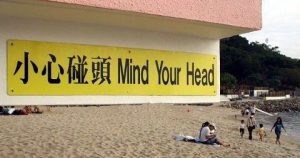There are many current events that sap our emotions and threaten to drain our pool of empathy. Many refer to this as “compassion fatigue”. We arrive at this destination often from a lack of self-care rather  than a lack of love. We also arrive there when, as people of faith, we begin with activism rather than centering our hearts and minds in Christ.
than a lack of love. We also arrive there when, as people of faith, we begin with activism rather than centering our hearts and minds in Christ.
Over the years many have written about the relationship between contemplation and action. My first exposure to this idea of contemplative activism was in Thomas Merton’s book Contemplation in a World of Action, first published in 1965. Here is how he frames this relationship:
What is the relation of this [contemplation] to action? Simply this. He who attempts and acts to do things for others or for the world without deepening his own self-understanding, freedom, integrity, and capacity to love, will not have anything to give others. He will communicate to them nothing but the contagion of his own obsessions, his aggressiveness, his ego-centered ambitions, his delusions about ends and means, his doctrinaire prejudices and ideas. There is nothing more tragic in the modern world than the misuse of power and action to which men are driven by their own Faustian misunderstandings and misapprehensions. (Thomas Merton, Contemplation in a World of Action, pp. 178-179.)
Injustice and pain in the world remind me of Jesus’ responses as recorded in scripture and, as I read about Jesus’ life, current injustices and divisions come to mind. There is a kind of circular movement toward Christ, toward others, and back toward Christ. The grounding of action in the One who holds the power to reconcile all things, bringing shalom to the nooks and crannies of our world, renews my spirit.
But more than that, first grounding myself in Christ changes how I perceive the world. To the point Merton addresses, when we begin anywhere other than Jesus, our only option is to ground our action in ourselves; our broken, confused, ego-centered selves.
I wrote the poem below in 1992. In it I attempt to address the issue of inaction in the face of injustice.
Love’s Darkest Hour
The antithesis of love’s not hate
for hate is love gone sour
but when, unmoved, we fail to act
this is love’s darkest hour
All around us lives despair
we fail to question why
this is the act that loves the least
and makes our souls run dry
Not to reflect on our own lives
and change for those in need
this seems to me love’s greatest foe
its name is Apathy
AFWade 6/12/1992
- What is your response to injustice?
- Does your time in prayer and contemplation prepare you for action?
- Does your action drive you back to prayer and contemplation?
- How do you combat “compassion fatigue” or a tendency toward apathy?
A Few Resources for Contemplative Activism
- Fuel Radio interview with Christine Sine
- The Center for Action and Contemplation – Richard Rohr
- Gravity Center for Contemplative Activism – Phileena and Chris Heuertz
